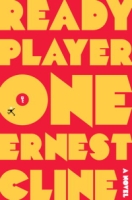
An edited and updated version of this article is now available at Video Game Canon.
Walk over to your media shelf and pick up a copy of Wii Sports or Halo 3 or Call of Duty: Modern Warfare 3. Odds are at least one of these titles will be in your collection. What do you call the item in your hand? Some people consider these items part of the “interactive entertainment” medium, but most of us just call them video games. Or are they videogames? Though they’ve existed for over forty years, no one has ever answered the question video game or videogame?
Of course, in the world of linguistics, just asking the question is bound to cause trouble. On one side you have the prescriptivists, who believe that all words and grammar should be strictly controlled for correctness, whatever that means. And on the other side, you have the descriptivists. They believe that language should adapt to current usage and they’re the ones who push for the addition of words like cromulent or embiggen to the dictionary, as writers have begun to use them far from their original source. (Bonus descriptivist victory: cromulent is recognized by the Google Docs spellchecker as a real word).
Looking at the word videogame/video game from this point of view, it’s plain to see that few prescriptivists have ever taken a stand on the great debate. While I personally have a descriptivist bent when it comes to language, I have to side with the rulemongers in this case. There is a correct spelling of video game, and videogame ain’t it.
To begin my quest in discovering the true spelling of video game/videogame, I consulted that ultimate arbiter of the English language, the Oxford English Dictionary. Within its many volumes, I discovered an entry for the two word phrase:
video game n. A game played by electronically manipulating images displayed on a television screen.
1973: Business Week 1973 10 November (212/1). “The astonishing ability of the video game to lure quarters from the public and the electronic techniques used in its design are forcing major changes on the coin-operated game business.”
1983: Wall St. Journal. 1983 5 January (1/2). “Coleco’s 1982 earnings ‘appear to be well in excess of five times 1981 levels of $7.7 million,’ the third-largest maker of video games said.”
Videogame is not included in the OED at all; though entering the compound word in the online version does redirect to video game.
Videogame was actually coined slightly later as its first usage can be traced back to the 1977 guidebook Video Games by Len Buckwalter. The book, which promises to be “a complete, illustrated guide to the video game phenomenon” uses video game and videogame interchangeably.
Actually, many publications use video game and videogame interchangeably. Time Magazine is probably the largest publication to use both, including their yearly list of “Top 10 Video Games,” but referencing them as videogames in many other articles. Among the major enthusiast sites, 1UP is the only one (more or less) to use both interchangeably, though videogame is more common. I say more or less as IGN uses videogame in articles but video game in its site header.
The strangest name in the either/or camp has to be the Game Developers Conference. The organizers of the industry’s biggest gathering of game creators can’t decide whether their focus is video games or videogames as both appear throughout the GDC website and in conference materials.
Everyone else has chosen a side and almost everyone has accepted the two-word video game as the standard. The industry’s biggest lobbying/activist group, the Entertainment Software Association, uses video game. Enthusiast sites like GameSpot, Kotaku, and Joystiq use video game. And whether you call it The Gray Lady or The Paper of Record or just The New York Times, it solely uses video game.
Academics an authors seem to prefer video game as two words as well including the historical tomes Game Over by David Sheff, Masters of Doom by David Kushnell, Grand Theft Childhood by Kutner and Olson, and Reality is Broken by Jane McGonigal.
 The University of Michigan’s Computer & Video Game Archive has made their choice plain, but Video Game Archivist David Carter pointed out the silliness of videogame by saying “You don’t see people referring to ‘Computergames’ or ‘Boardgames’ or ‘Cardcames’.” The Strong Museum’s International Center for the History of Electronic Games prefers video game as well.
The University of Michigan’s Computer & Video Game Archive has made their choice plain, but Video Game Archivist David Carter pointed out the silliness of videogame by saying “You don’t see people referring to ‘Computergames’ or ‘Boardgames’ or ‘Cardcames’.” The Strong Museum’s International Center for the History of Electronic Games prefers video game as well.
That’s not to say that videogame doesn’t have its fervent supporters. Jerry Holkins and Mike Krahulik of Penny Arcade use videogame. Needless to say, the website and promotional materials for their Penny Arcade Expo and Child’s Play charity do as well.
The Videogame History Museum in Sunnyvale, California is another entity that used its name to make a statement on the validity of one over the other. However, Director Sean Kelly told me the museum could easily have been the Video Game History Museum instead. Ultimately, it was the spoken form of videogame that spoke to the museum’s staff:
“I think either ‘works,’ but it seemed to make slightly more sense to us that it is used a single word. The word, as it is spoken, sounds like you’re speaking one word. It’s not very common for people to say it with a pause, however so slight; in-between as [if] you were saying a two-word phrase. If you were saying something like ‘video signal,’ you would speak with a slight pause designating the two words.”
 But perhaps the biggest proponent for videogame as a single word is an anonymous copy editor at Random House. Before Ernest Cline’s 2011 novel, Ready Player One, was published, this editor changed every iteration of video game to videogame. For his part, Cline is firmly in the either/or camp: “In my original manuscript I used ‘video game.’ During the copyediting phase of my book it was changed to ‘videogame’ to adhere to [Random House’s] current style guidelines. I think either usage is acceptable now, so I didn’t mind the change.”
But perhaps the biggest proponent for videogame as a single word is an anonymous copy editor at Random House. Before Ernest Cline’s 2011 novel, Ready Player One, was published, this editor changed every iteration of video game to videogame. For his part, Cline is firmly in the either/or camp: “In my original manuscript I used ‘video game.’ During the copyediting phase of my book it was changed to ‘videogame’ to adhere to [Random House’s] current style guidelines. I think either usage is acceptable now, so I didn’t mind the change.”
As a descriptivist, I believe the words we speak and the way we speak them cannot be constrained by rules. Language is a living, breathing organism, just as it was when I slipped cromulent into a History paper as a high school sophomore. But for the question of video game or videogame, only mathematics, the hardest of the hard sciences, can provide the answer.
The National Newspapers database has been populated by “the most read and widely-respected papers in the U.S.” A search for videogame yields 7,000 results. But a search for video game returns 318,000 results.
The people, quite literally, have spoken.







